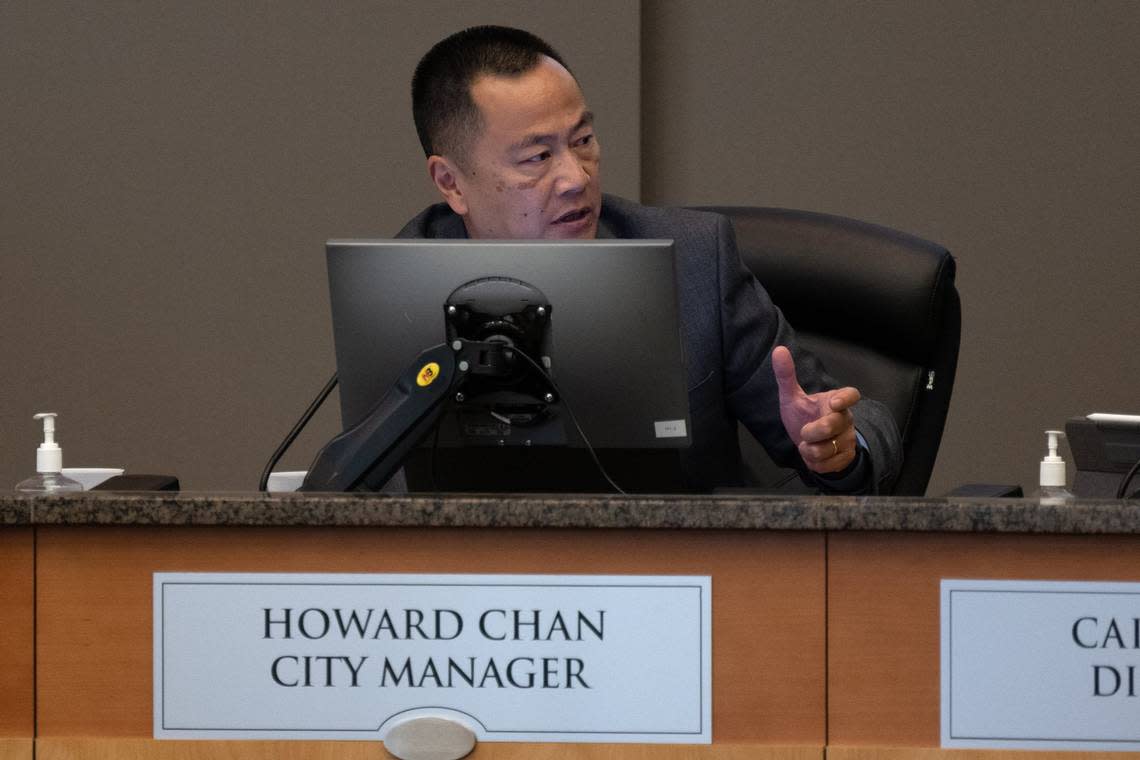After Bee report, Sacramento council set to change how it discusses raises for city manager

After The Sacramento Bee reported the city of Sacramento may have been violating state law by discussing raises for its city manager in private, the council is set to update its rules.
The update, which the council will consider Tuesday, will clarify that the city’s Human Relations employees are to negotiate raises with City Manager Howard Chan, then bring them to the council to discuss and vote on in public.
The Bee called Councilwoman Katie Valenzuela last month to tell her that an expert had said elected bodies are not allowed to discuss raises for employees in private. Valenzuela then called for the city attorney’s office to probe whether the council had violated the law during its closed meeting June 11.
City Clerk Mindy Cuppy Friday said that the City Council rules have always been in alignment with the Brown Act, the state law that requires governmental bodies to inform public on the agenda items that will be discussed at meetings.
Government bodies “shall not include discussion or action on proposed compensation except for a reduction of compensation that results from the imposition of discipline,” the act states.
Asked if the probe into the June 11 discussion revealed that there was a violation of the council rules or the state law, Cuppy stated “Councilmember Valenzuela asked that the rules be clarified which is why this report was brought forward.”
The council is set to consider adding language from the Brown Act into its “council rules of procedure.” The new language spells out that negotiators are the ones to speak with an employee about his or her raise.
Valenzuela said she will vote yes on the item Tuesday.
“I’m thankful for them making these changes so we can make sure our closed sessions follow not just the law but our public’s desire for transparency,” Valenzuela said.
The new language added to the council rules appears to follow the Brown Act, said David Loy, an attorney with the First Amendment Coalition specializing in the act.
However, if Chan is allowed in the meeting while the council talks to the negotiators, it would be a violation, Loy said.
“They could not bring the owner of the building into closed session and do the negotiations for its purchase in closed session,” Loy said. “I think the same principle applies here.”
Valenzuela said Chan has been in the room previously while the council discussed his salary.
It’s unclear whether under the new language Chan will still be in the room. City spokesman Tim Swanson, who is also Chan’s spokesman, declined to answer that question referring The Bee instead to the City Clerk’s Office.
Ahead of the June 11 closed session meeting, the city in its agenda notified the public it would be discussing a performance evaluation for Chan — one of the few reasons the state’s Brown Act allows elected leaders to talk behind closed doors.
That exemption allows councils to discuss disciplinary pay decreases for city employees, but not raises, Loy said.
The private discussion was slated to start at 3 p.m. and went on for over two hours. Meanwhile, members of the public were filling the council chambers to share their viewpoints on the $1.6 billion city budget the council would approve later that night. By the time the council entered the packed chambers to start the meeting, the council meeting was 34 minutes behind schedule.
Chan’s salary has been under high public scrutiny in recent years.
In December, in a late-night meeting without proper public notice, the council voted to give him a raise to bring his $400,000 base salary to $420,000, including 240 hours of leave time that could be cashed out at his discretion.
Valenzuela, along with Mayor Darrell Steinberg and Mai Vang, abstained. In early January, after The Bee reported the raise had violated the Brown Act, the council effectively rescinded it, pulling it for consideration at a future meeting, which has not yet happened. It also changed the rules to prohibit Chan from placing a raise for himself on future agendas. But in June, the item to discuss Chan’s performance showed up on two closed session meeting agendas, indicating he may have been still trying for a raise.
Chan did not immediately respond to a message seeking comment for this story.
Data released from the California Controller’s Office late last month showed Chan for the second consecutive year earned more in total wages than any other active city manager in the state. Chan earned $593,240 in total wages last year, up 8% from 2022, the data showed.
That’s more than the city manager of San Jose, the biggest city in California that, like Sacramento, has a system of government where the council and the manager wield executive power, and is also more than Gov. Gavin Newsom.
The meeting will take place at 2 p.m. Tuesday.
Chan’s contract expires Dec. 31. He became city manager in 2017.
The item the council will consider Tuesday would also ban members of the public from displaying items on the overhead projector during public comments.

